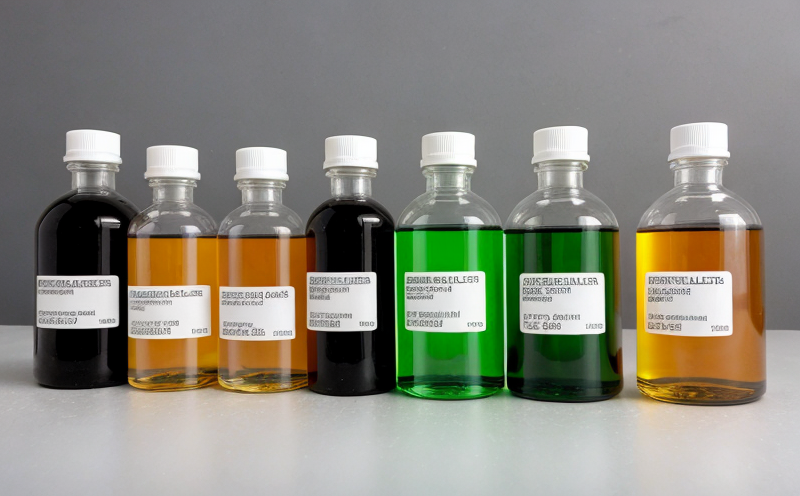ISO 10993-18 Extractables Testing in Non-Polar Solvents
The ISO 10993-18 standard is a crucial guideline for medical device manufacturers to ensure the safety and compatibility of their products with human tissue. This section specifically focuses on Extractables Testing in Non-Polar Solvents. Extractables are substances that migrate from a medical device into contact media or biocompatibility test solutions, which can then influence biological responses when introduced to the body.
The process involves simulating real-world conditions by using non-polar solvents to dissolve potential extractable materials. These materials could include lubricants, adhesives, sealants, and other components that might come into contact with human tissue during use or sterilization processes. The extracted compounds are then analyzed for their identity and concentration.
Non-polar solvents such as pentane, hexane, heptane, or toluene are used because they do not interact strongly with polar functional groups on the surface of materials. This non-interference property ensures that only genuine extractable components are isolated rather than compounds that have been adsorbed onto the device’s surface.
The testing procedure typically begins with thorough preparation of the sample, which includes cleaning and conditioning according to predefined protocols outlined in ISO 10993-18. Specimens undergo immersion in non-polar solvents for extended periods under controlled conditions (temperature, humidity). After extraction, the solvent is analyzed using various analytical techniques like gas chromatography-mass spectrometry (GC-MS), high-performance liquid chromatography (HPLC), or Fourier-transform infrared spectroscopy (FTIR).
Once identified and quantified, these extractables undergo rigorous evaluation based on their chemical structure, physical properties, and potential for interaction with biological systems. Compliance with relevant regulatory requirements is critical; therefore, it's essential to ensure that all extracted compounds are within acceptable limits as specified in national or international standards.
Industry Applications
| Medical Device Type | Application |
|---|---|
| Orthopedic Implants | Evaluating lubricants and surface treatments for biocompatibility. |
| Catheters & Intravenous Devices | Assessing the compatibility of materials used in manufacturing. |
| Dental Implants | Checking for any potential leachable agents that may affect oral health. |
| Contact Lens Cases | Ensuring no harmful substances are released during usage. |
The results of ISO 10993-18 extractables testing play a vital role in ensuring that medical devices meet stringent biocompatibility requirements set forth by regulatory agencies worldwide. By identifying all possible leachable and extractable components early on, manufacturers can address potential risks before products reach the market.
Eurolab Advantages
State-of-the-Art Facilities: Equipped with advanced instrumentation capable of handling complex samples and providing precise data. Our laboratory adheres strictly to ISO 10993-18 guidelines ensuring accurate results.
Experienced Technicians: Our team comprises highly trained professionals who possess deep knowledge about the nuances involved in extractables testing.
Comprehensive Reporting: Detailed reports are provided outlining test procedures, findings, and interpretations. These documents serve as valuable resources for decision-makers within organizations.
Regulatory Compliance: We stay updated on all relevant standards and guidelines to ensure our services align with current regulatory expectations.
Frequently Asked Questions
Competitive Advantage and Market Impact
- Accurate Data: Precision in identifying and quantifying extractables ensures better decision-making for product development.
- Regulatory Readiness: Compliance with international standards prepares clients for market entry requirements globally.
- Enhanced Reputation: Demonstrating robust quality control measures enhances brand reputation among stakeholders.
- Increased Confidence: Reliable testing builds trust between manufacturers and regulatory bodies alike.
The ability to perform thorough extractables testing in non-polar solvents not only meets but exceeds expectations set by healthcare organizations, ultimately contributing positively towards improved patient care outcomes.





